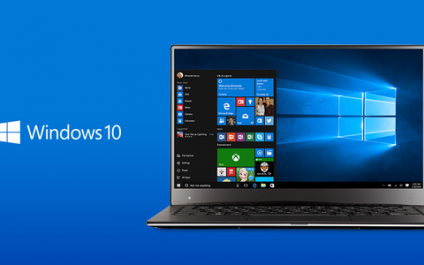Microsoft’s newest incarnation of the now 30-year-old Windows brand was officially released to the computing public last week. Much of the online commentary has focused on user-interface aspects of the new OS, such as the newly redesigned (again!) Start menu, the ability to run the newer-style (Metro/Modern) apps in a window instead of full-screen, and the new virtual assistant known as Cortana. Understandable, since that’s what most users will notice and see, and that’s where Microsoft received the most Windows 8 criticism.
Blog
Windows 10, Part 1: Release News
You may have seen some of the press, or even a “Windows 10 is coming” notification on your desktop along with an offer to “reserve your upgrade”. By the way, if you’re only half-paying attention don’t worry, you didn’t miss Windows 9. Microsoft decided to skip a version and go right from Windows 8 (and 8.1) to Windows 10.
Five Reasons To Use Remote Desktop Gateway
This month’s article highlights another under-appreciated, but very useful technology that’s built into Microsoft’s Windows Server products.
When is a business too small to use Active Directory?
I had a conversation with a client recently about Active Directory, and why it was a good idea, even for very small businesses. Like many business owners, my client had heard of Active Directory, but wasn’t really sure what it is.
Worst Case Scenario
“Worst Case Scenario” thinking can help your business be prepared. No one likes to think about it, but what would you do if your office burned down, or flooded, or if thieves walked off with everything in your server closet? More to the point, would your business be able to survive?
The Ever-Expanding Phone Screen
Is your smartphone bigger than your last one? Chances are pretty good the phone you have now, or the one you’re going to get next, has a larger screen than the previous one.
Secure Email: an Oxymoron?
Email security is on my mind today for a couple of reasons.
With my oldest daughter off to Marquette University in the fall, the “college fund” my wife and I have been saving into for years is no longer a deposit-only thing – we need to start tapping into it to pay tuition bills. So I’ve had to exchange some documents (via secure email) with my financial advisor to get accounts linked so we can transfer funds and make those tuition payments.
Should I Subscribe to Software, or Buy It?
Software vendors are increasingly using a combination of carrot and stick to induce customers to sign up for their subscription-based software licensing. The “carrots” tend to be extra features or permitted uses, while the stick may be higher prices for traditional perpetual licenses, or discontinuing the perpetual license (almost) entirely, as Adobe has recently announced.
Heartbleed Security Flaw – What Do I Need to Do?
You’ve likely seen media coverage of the recent “Heartbleed” security issue. We have received a lot of questions about it, so I figured a brief FAQ might be helpful.
Virtualization in Small Businesses
Virtualization? Isn’t that only for data centers? Not by a long shot…read on.
While virtualization has clear benefits for companies with large server farms and data centers, this is far from the only application of virtualization. Small businesses have a lot to gain from this trend, and the inclusion of Hyper-V and its features as a “built-in” technology in Windows Server makes a compelling case that smaller companies should not ignore the “virtual” revolution in computing. In addition to Microsoft’s Hyper-V, other virtualization products include the market leader, vSphere from VMware, as well as Citrix XenServer, and Oracle’s VirtualBox.

